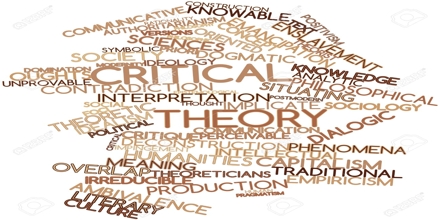
The postmodern era brings together the best of both modern and ancient achievements. It positions them both to compete against each other and to be mutually beneficial. Although the knowledge of culture has the potential to compete with that of the finite knowledgeer, it can also benefit by the knowledge and wisdom of nature.
Lyotard
Lyotard's philosophy of postmodernism describes the present world as postmodern. It also describes it as a period of fragmentation, pluralism and innovation. A postmodern world is one in which everything is constantly changing, and there is no one idea or person who has all the knowledge.

Latour
Bruno Latour's postmodernism philosophical approach to knowledge challenges the conventional understanding of knowledge. According to Latour, scientific facts are products of human procedures and should not be treated as absolutes.
Holderlin
Johann Christian Friedrich Holderlin is most well-known as a pioneer in German romantic poetry. His contributions as a poet were widely recognized in the first half century of the 20th century. His thought also influenced Martin Heidegger's work. Yet his contribution to philosophy has taken longer to be acknowledged. However, his thinking is fundamental to understanding German Idealism. It speaks to the philosophical issues that face our time.
Nietzsche
Nietzsche's postmodernism theory is the belief that everything can be rebuilt, even the meanings of texts. He rejects God as a Christian God and insists that meaning must always change according to the current context. Nietzsche holds that the will-to-power is a fundamental moral principle which must be interpreted in this context.
Nietzschean method of genealogy
As a principle of interpretation, the Nietzschean method for genealogy in postmodernism philosophy could be considered a critical principle. This requires that an individual is placed within a larger context and addressed the central philosophical problem. Genealogy refers to a unity or coherence in thought.

Nietzschean notion of an eternal return
Nietzsche's theory on eternity is an extreme departure from the Christian view of eternity. He doesn't believe the soul returns to God. He views the universe and its eternal play as akin to the cosmic children. Therefore, the horizons are filled with events that can neither be permanent nor temporary but instead play out in a way that doesn't have any preference for their outcome. This is the philosophical basis for Nietzsche's concept of eternal return.
FAQ
Are Tik Toks pop culture?
The answer is Yes It's no longer just for teens. These videos can be used by anyone to express their feelings, share life moments, and show support.
Every day, the app is used by over 200,000,000 people worldwide. Each day, the number of users grows by millions.
TikTok provides a fantastic opportunity for brands and consumers to build meaningful relationships.
TikTok is also home for many influencers who have built huge followings. These creators produce original content that engages people around the world.
So what are waiting for? If you want to take advantage of this trend, here are four ways to do it.
-
Make Viral Content
-
Engage Influencers
-
Use Visuals Effectively
-
Create with Your Audience
What are examples of pop culture today?
Pop Culture refers to the art form of 21st century. Pop Culture includes all forms of popular entertainment such as music, film, TV and video games, fashion, advertising and comics. Author Neil Postman coined the term in his book Amusing Ourselves To Death (1985). Pop refers to mass communication that uses formulaic and cheap tricks to create an illusion or spontaneity.
He did however point out that most people don't feel genuine enjoyment because they are trained to seek media experiences which make them feel superior. He also argued that cultural expression has contributed to the decline in critical thinking skills among young adults.
Pop culture can also refer to popular culture and consumerism.
What can pop culture teach us about ourselves?
Modern society places more emphasis on material possessions than other things. This is especially true of young people. They spend hours each day staring at screens. They are addicted to video games, movies, and surfing the web. All of these distract them from the task at hand, which is to complete school work. As a consequence, they often fail classes.
We live in a world where everyone wants to fit in. That means being popular. Popularity is dependent on having money, clothes, or other possessions. This causes some people to do things they don't like.
Technology has made us dependent. We now have access to all types of information thanks to technology. However, not all information is accurate. False rumors are all over the Internet. These rumors spread quickly because people share them on social media sites. It is easy to share something without verifying its truth.
People have lost the ability to think critically. People believe everything they see on the Internet. They trust what they hear on television and in magazines. They stop thinking for themselves. They instead follow the crowd.
When we rely on others to tell us what's happening, we lose control over our lives. Pop culture encourages us to rely on others. It can also lead to lazy people. The truth is out there, but we don't always find it.
What are some examples of pop culture 2021?
The world was changed forever on 11th September 2001, when two planes were hijacked by terrorists and crashed into the twin towers of the World Trade Center in New York City. This day would become known as 9/11.
The events of that day have influenced popular culture today. We can see the many ways that this event has influenced us.
Television shows like 24 and movies like United 93 are included. They tell the story of the events that took place on the flight from Boston, Massachusetts to Los Angeles on September 11, 2001. Dexter Filkins' The Forever War book is included.
All of us can recall where we were at the time that we heard about the attacks. Some people got up and went outside, while others read the newspapers or watched TV.
Pop culture is constantly changing. Pop culture is a reflection of society and an inspiration. How will popular culture change next year? We don't yet know. All we know is that it will be different than it was before.
How did pop culture come to be?
It was an accident. The mistake that caused the first song to be written was when someone accidentally knocked a piano over while playing on New Years Eve 1920.
The recording company loved the music and decided to make it a single.
This became the first recorded hit single.
Pop music is today the most popular form musical entertainment.
How can we avoid the dangers posed by pop culture?
We need to recognize when pop culture influences us. Then we need to make sure that we're not influenced by it. Here are some ways to stay clear of bad influences.
-
Avoid violent shows such as Game of Thrones.
-
Do not spend too much time on the Internet. Instead, learn from books.
-
You should watch less TV. Spend your time doing activities that are healthy.
-
Take care of what you post online. Remember that you can never delete comments once they've been posted.
-
You should ensure that all websites you visit are secure. Before you provide personal information, be sure to check them.
-
Don't let anyone pressure you into doing dangerous things.
Talk to an adult if you feel like you are becoming dependent on pop culture. You can reach out to your local library or National Center For Missing &exploited Children (1 800-THE LOST).
Who first coined the term Pop Music
Frank Zappa invented it. Pop music was his preferred style.
He stated that he wanted to create music that appealed to everyone. That's why he called his music pop music.
Zappa also invented the phrase "You Know It's Pop when ..."", which signifies that something is popular if there are many people who enjoy it. For example, Michael Jackson's Thriller album is one of the best-selling albums ever.
Zappa's definitions are very different to the present definition of pop music. Pop music is today all music. Back then, pop music was limited to certain types of music.
Statistics
- For example, the term hater meaning someone who strongly undermines or criticizes others, often due to pathetic jealousy, likely emerged from hip hop culture, such as the term playa hateras, used by influential rapper Biggie Smalls as early as 1995. (simplicable.com)
- Recently, the market share across Western Europe has ranged from 60-75% (Hopewell, 2013). (socialsci.libretexts.org)
- Yet a Nielsen study shows they account for 42% of the country's most-watched content on streaming services. courtesy Nielsen (npr.org)
- [17][18][19]Definition[edit]According to author John Storey, there are various definitions of popular culture. (en.wikipedia.org)
- According to Kathryn Sorrells (2013, pp. 142-144), there are several ways that we can become informed consumers of popular culture. (socialsci.libretexts.org)
External Links
How To
What is pop culture in movies?
Popular Movies Culture is a collection of all things entertainment including books and magazines, newspapers, television programmes, websites, blogs social media, apps, games and more.
There are many types of movies: drama, horrors, comedy, action/adventure and fantasy. Science fiction, romance, thrillers, war, documentary, animated, and westerns.
Movie plots typically follow a predictable pattern of events that ends with a satisfying conclusion.
A movie's success will depend on how well it follows this formula.
Some common plot points include:
-
The protagonist must overcome obstacles in order to reach his/her goal.
-
An antagonist that opposes your protagonist throughout the film.
-
A moral dilemma that forces the protagonist to make a choice.
-
A twist ending that changes everything.
If your story doesn't fit into one of these categories, you may need to reevaluate your concept or outline before you begin writing.
These questions are particularly important to consider:
-
How do I establish my setting?
-
What does my protagonist want?
-
Why should readers care?
-
Where is my story going now?
-
Who is my main protagonist?
-
Will there be any conflict?
-
What is the climax of this story?
-
What's my resolution?
-
Is it happy or sad that the ending is here?
-
Do I need to introduce new characters
-
Do I have multiple settings in my story?
-
Are there subplots available?
-
Are there major themes?
-
Can I tell a complete tale in just one chapter?
-
Am I using dialogue effectively?
-
Is my language clear and concise?
-
What is the context for my vocabulary?
-
Have I used active voice instead of passive voice?
-
Are there spelling mistakes?
-
Is my grammar correct?
-
Are there too many adjectives?
-
Is there something I could do better?
-
How do you feel about my first impression after editing?
It is your job to not only write a great book, but also to publish it.